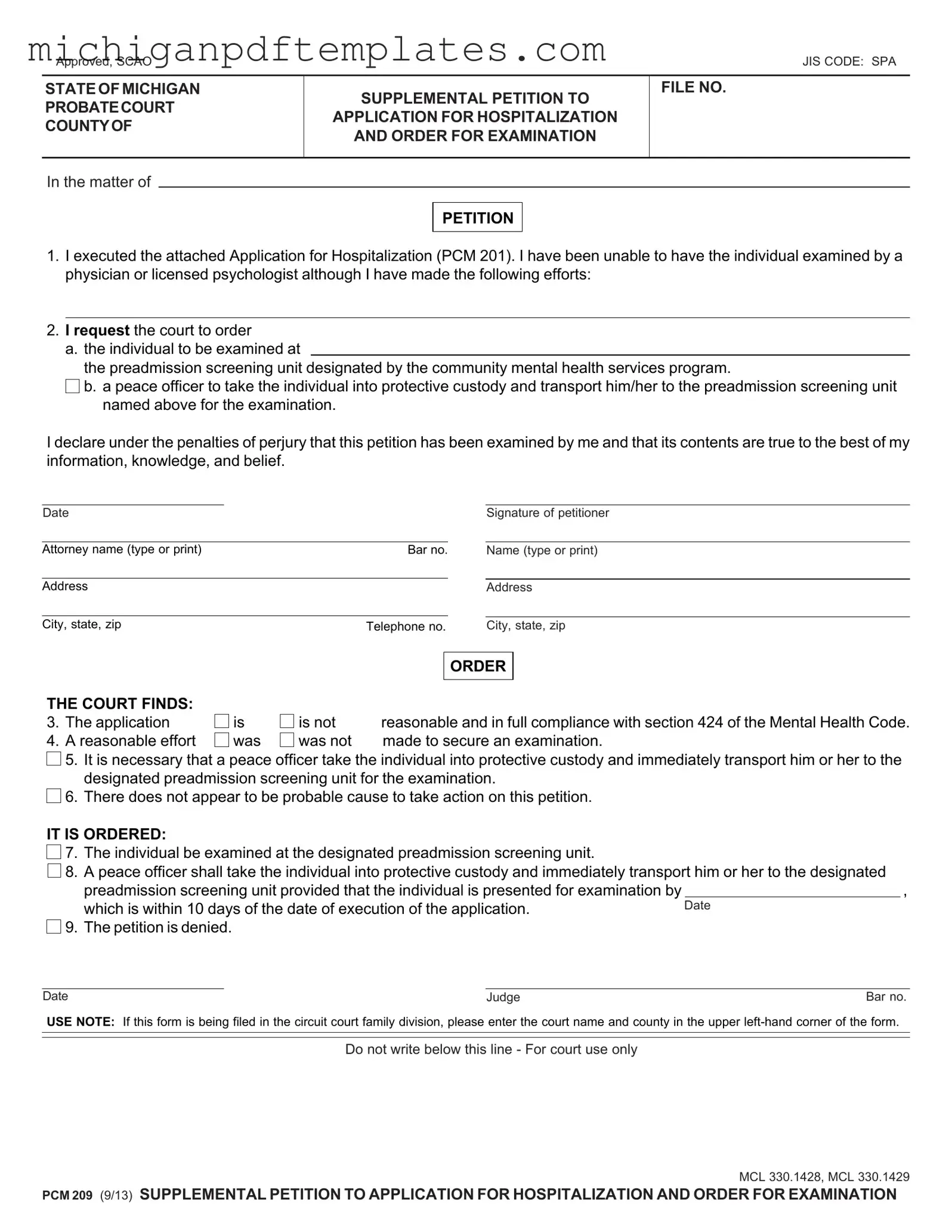Fill in Your Pcm 209 Michigan Form
The PCM 209 Michigan form is a legal document used in the probate court system to request a court order for the examination of an individual who may require hospitalization due to mental health concerns. This form allows petitioners to outline their efforts to have the individual examined and to seek assistance from law enforcement if necessary. If you need to fill out this form, click the button below for guidance.
Get Your Form Now

Fill in Your Pcm 209 Michigan Form
Get Your Form Now

Get Your Form Now
or
▼ PDF Form
Finish this form quickly and move on
Fill in and complete Pcm 209 Michigan online quickly.